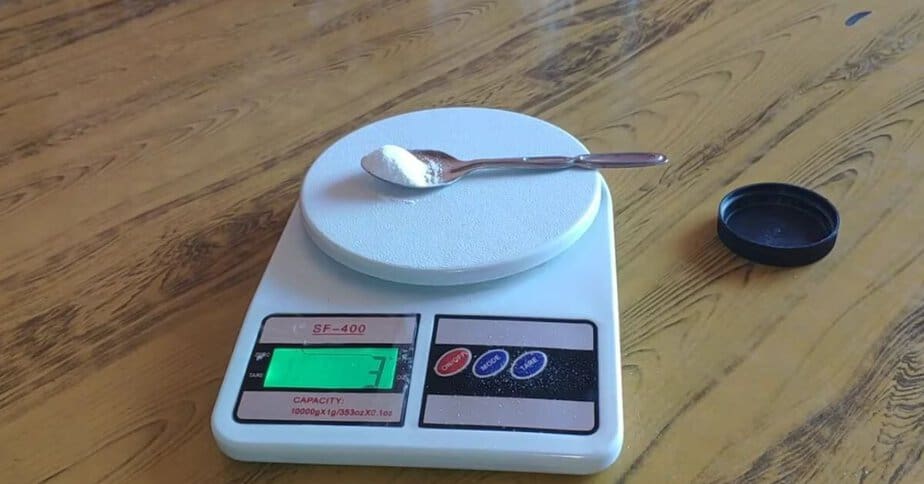Is 3G of Creatine Enough? Discover the Optimal Dosage
Last Updated on December 18, 2023 by Justin Harris
Is 3G of Creatine Enough: Yes, 3g of creatine is enough. Taking 3g of creatine per day is sufficient to fully saturate the muscles and maintain saturation on a permanent basis.
Creatine is a popular supplement known for its ability to enhance athletic performance and muscle strength. However, many individuals wonder how much creatine they should take to experience its benefits without overdoing it. The recommended daily dosage of creatine is 3g, which is enough to fully saturate the muscles and maintain saturation on a permanent basis.

This dosage ensures that your muscles receive an adequate supply of creatine without exceeding safe levels. By taking 3g of creatine per day, you can effectively enhance your athletic performance and support muscle growth. It’s important to note that individual responses to creatine may vary, so it’s always a good idea to consult with a healthcare professional before starting any new supplement regimen.
Read Also: Is Beef Jerky Good for Bulking?
Understanding The Benefits Of Creatine
Understanding the benefits of creatine is essential in determining the appropriate dosage.
- Improved muscle strength and power: Creatine supplementation has been shown to enhance strength and power outputs during resistance and high-intensity exercise.
- Enhanced exercise performance: Creatine can improve performance in activities that require short bursts of intense effort, such as sprints or weightlifting.
- Increased muscle mass and volume: Creatine supplementation has been demonstrated to promote muscle growth and increase muscle cell volume.
Read Also: What is Pinning in Bodybuilding
Factors Influencing Creatine Absorption
When it comes to the question of whether 3g of creatine is enough, there are several factors that can influence creatine absorption in the body. One such factor is body weight and composition. Individuals with higher body weight may require a higher dosage of creatine to achieve the desired effects, as the creatine needs to be distributed throughout a larger body mass.
Another factor to consider is individual metabolism. Some individuals may have a faster metabolism, which can affect the absorption rate of creatine. For these individuals, a higher dosage may be necessary to ensure optimal absorption.
The timing and frequency of consumption is also important. Taking creatine consistently and at regular intervals can help maintain optimal levels in the body. Some individuals may prefer to take multiple smaller doses throughout the day, while others may choose to take a single larger dose.
The appropriate dosage of creatine may vary depending on factors such as body weight, metabolism, and consumption habits. It is recommended to consult with a healthcare professional or follow expert guidelines for the most accurate dosage recommendation.
Finding Your Optimal Creatine Dosage
When it comes to determining the right creatine dosage, it is important to start with a low dosage and gradually increase as needed. Ysually, starting with a daily dosage of 3g is recommended. This allows you to assess your response and tolerance to the supplement before increasing the dosage.
By starting with a low dosage, you can monitor any potential side effects or adverse reactions. If you experience any negative effects, such as stomach discomfort or bloating, it may be an indication that you need to adjust your dosage. Additionally, starting with a lower dosage allows you to gauge the effectiveness of the supplement and make necessary adjustments. Furthermore, it is important to note that individual responses to creatine can vary, so it’s essential to find the dosage that works best for your body.
Once you have assessed your response and tolerance, you can gradually increase the dosage. This could involve increasing the daily dosage by 1g or 2g every few weeks until you reach your optimal dosage. Moreover, it is recommended to consult with a healthcare professional or a sports nutritionist for personalized advice based on your specific needs and goals.
Commonly Recommended Creatine Dosages
- For men, the typical recommended daily dosage ranges from 3 to 5 grams.
- For women, the recommended daily dosage ranges from 2 to 3 grams.
During the loading phase, it’s common to take higher doses of creatine for a short period of time. This typically involves taking 20 grams per day, divided into 4 doses of 5 grams each, for the first 5-7 days. After the loading phase, the maintenance phase begins, and the daily dosage is reduced to the recommended ranges mentioned earlier.
Read Also: Are 14 Inch Arms Big? Unveiling the Power and Strength
- For those looking to improve strength and power, an extra 5 grams of creatine can be taken pre-workout.
- For endurance athletes, a daily dosage of 2-3 grams can provide benefits without causing excessive water retention.
- In conclusion, it’s important to follow recommended dosages and adjust them based on individual goals and tolerance. Taking more than the recommended dosage does not necessarily lead to better results and can increase the risk of side effects.
Potential Side Effects Of High Creatine Dosages
Taking 3g of creatine per day is typically enough for most individuals. However, high dosages may lead to potential side effects. It is important to be aware of the risks and consult with a healthcare professional before increasing your creatine intake.
Dehydration And Water Retention
When it comes to high dosages of creatine, one potential side effect is dehydration. Creatine has been found to draw water into your muscles, which can lead to an imbalance in fluid levels within your body. This can be particularly problematic if you aren’t adequately hydrated before taking creatine supplements. Additionally, water retention may occur, causing you to feel bloated or appear to have gained weight.
Read Also: How Long Does Creatine Last in Water: Uncovering the Secrets
Gastrointestinal Distress
Another possible side effect of high creatine dosages is gastrointestinal distress. Some individuals may experience symptoms such as stomach cramps, nausea, diarrhea, or an upset stomach. It is believed that the introduction of creatine to the digestive system can cause these adverse effects, especially when taken in high doses or on an empty stomach.
Read Also,
- Best Treadmill Under 2000
- Best Treadmills Under 1500
- Best Ellipticals Under 1000
- Treadmill Under 200 Dollars
- Best Treadmill Under 200
- Best Stationary Bike Under 200
- Best Treadmill for 500 Pounds
- Best Exercise Bikes Under 300
- Exercise Bikes for Short People
- Best Elliptical for Short Person
- Best Rowing Machine Under 300
Kidney And Liver Function
Concerns have been raised about the potential impact of high creatine dosages on kidney and liver function. While research is limited and conflicting, some studies suggest that excessive creatine consumption could potentially strain these organs. However, it’s important to note that the majority of individuals who consume creatine within the recommended dosage guidelines do not experience adverse effects on their kidney or liver function.
Conclusion
Based on the available information and research, it is evident that 3 grams of creatine per day can be sufficient for most individuals. While higher doses may be used during a loading phase, it is not necessary for maintaining the desired effects.
However, as with any supplement, it is important to consult with a healthcare professional before starting any new regimen. Ultimately, finding the right dosage for your individual needs and goals is crucial for maximizing the benefits of creatine supplementation.






